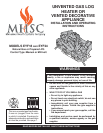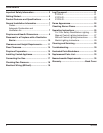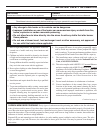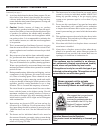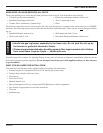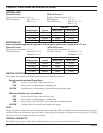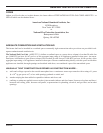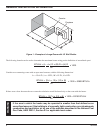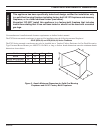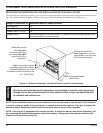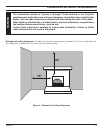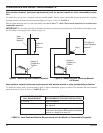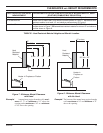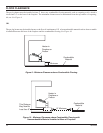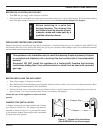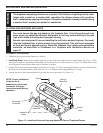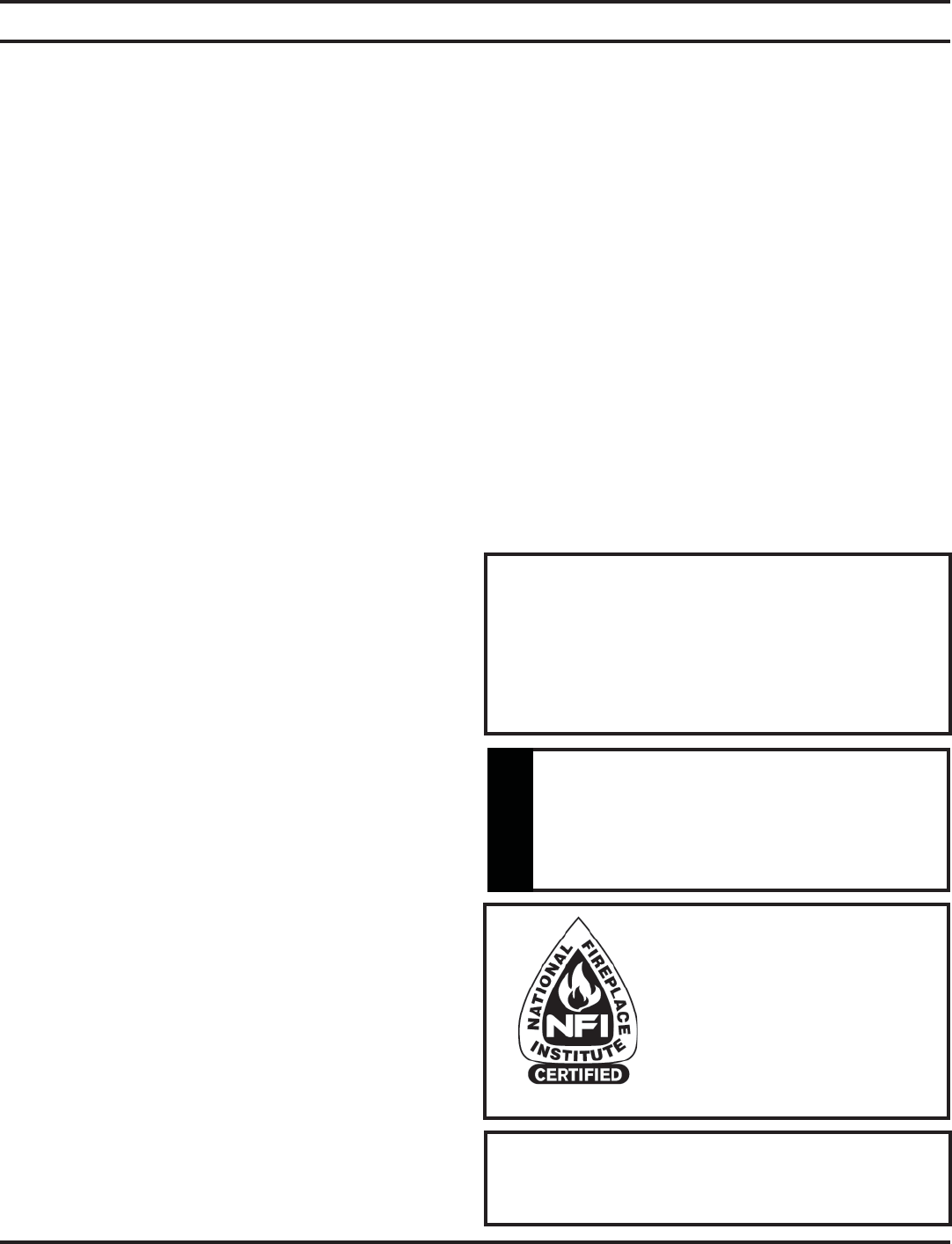
4 65D1009
IMPORTANT SAFETY INFORMATION
This appliance may be installed in an aftermar-
ket, permanently located, manufactured (mobile)
home, where not prohibited by local codes.
This appliance is only for use with the type of gas
indicated on the rating plate. This appliance is not
convertible for use with other gases.
Continued from page 3
13. Avoid any drafts that alter burner flame patterns. Do not
allow fans to blow directly into fireplace. Do not place
a blower inside burn area of firebox. Ceiling fans may
create drafts that alter burner flame patterns. Sooting and
improper burning will occur.
14. Caution: Candles, incense, oil lamps, etc. produce
combustion by-products including soot. Vent-free appli-
ances will not filter or clean soot produced by these types
of products. In addition, the smoke and/or aromatics
(scents) may be reburnt in the vent-free appliance which
can produce odors. It is recommended to minimize the
use of candles, incense, etc. while the vent-free appliance
is in operation.
15. This is an unvented gas-fired heater. It uses air (oxygen)
from the room in which it is installed. Provisions for ad-
equate combustion and ventilation air must be provided.
See page 7.
16. Keep room area clear and free from combustible materi-
als, gasoline and other flammable vapors and liquids.
17. Unvented gas heaters are a supplemental zone heater.
They are not intended to be a primary heating appliance.
Water vapor produced by an unvented heater can create
moisture problems in a home when operated for extended
periods of time.
18. During manufacturing, fabricating and shipping, various
components of this appliance are treated with certain
oils, films or bonding agents. These chemicals are not
harmful but may produce annoying smoke and smells
as they are burned off during the initial operation of the
appliance; possibly causing headaches or eye or lung
irritation. This is a normal and temporary occurrence.
The initial break-in operation should last two to three
hours with the burner at the highest setting. Provide
maximum ventilation by opening windows or doors to
allow odors to dissipate. Any odors remaining after this
initial break-in period will be slight and will disappear
with continued use.
19. Input ratings are shown in BTU per hour and are for
elevations up to 2,000 feet. For elevations above 2,000
feet, input ratings should be reduced 4 percent for each
1,000 feet above sea level. See the National Fuel Gas
Code.
20. The heater and its individual shutoff valve must be
disconnected from the gas supply piping system during
any pressure testing of that system at test pressures in
excess of 1/2 psig (3.5 kPa).
21. The heater must be isolated from the gas supply piping
system by closing its individual manual shutoff valve
during any pressure testing of the gas supply piping
system at test pressures equal to or less than 1/2 psig
(3.5 kPa).
22. Do not use this room heater if any part has been under
water. Immediately call a qualified service technician
to inspect the room heater and to replace any part of the
control system and any gas control which has been under
water.
23. This appliance must not be used with glass doors in the
closed position. This can lead to pilot outages and severe
sooting outside the fireplace.
24. Never burn solid fuels in a fireplace where a unvented
room heater is installed.
25. Always have a fireplace screen in place when the ap-
pliance is in operation and , unless other provisions for
combustion air are provided, the screen shall have an
opening(s) for induction of combustion air.
www.nficertified.org
We suggest that our gas hearth
products be installed and
serviced by professionals who
are certified in the U.S. by the
National Fireplace Institute
®
(NFI) as Gas Specialists.
Never connect unit to private
(non-utility) gas wells. This gas is
commonly known as wellhead gas.
WARNING
Attention Massachusetts Residents:
This product must be installed by a licensed gas
fitter.



